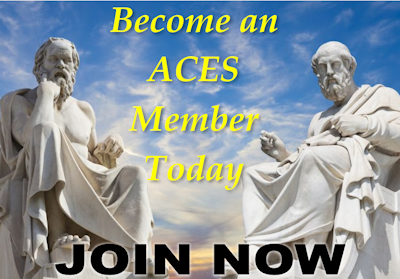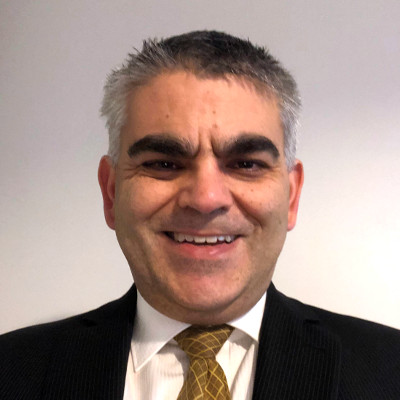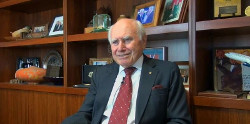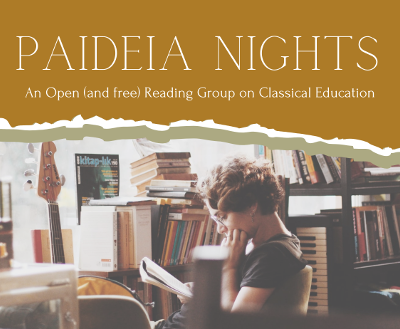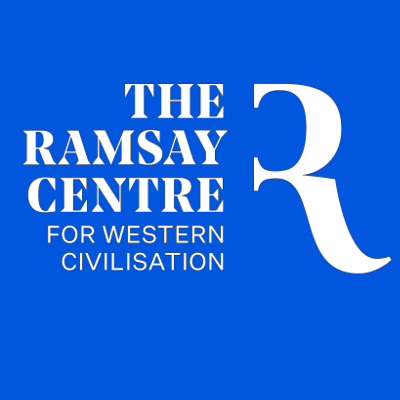Jennifer Ruth Dow
What makes one a classical teacher? How is a classical teacher different than a “regular” teacher? How does one become a classical teacher? While we could certainly have this conversation over several hours with more discussion to follow, let me offer a starting point with a few pillar ideas that speak to the question.
David Hicks, in his seminal work Norms & Nobility, says, “Classical Education is not, preeminently, of a specific time or place. It stands instead for a spirit of inquiry and a form of instruction concerned with the development of style through language and of conscience through myth. The key word here is inquiry.”
If this is what classical education is (and I believe it is), then a classical teacher is a teacher who teaches from this spirit and in this form. A Classical teacher leads off with the classical spirit of inquiry and carries on with the classical form of instruction to an ethical and aesthetic end.
Embodies the Classical Spirit of Inquiry
Classical teaching is not just about teaching a unique selection of books. Classical education is not attached to a specific region, nation, or time. Instead, classical education, and therefore classical teaching, draws energy and direction from the classical spirit of inquiry. The classical spirit of inquiry is the uniquely characteristic way we approach any intentional pursuit of knowledge in classical learning. The inquiry is that energy of the mind and the affections that precede all knowledge and apprehension. That energy goes to work in the form of attention. This kind of attention is marked by general curiosity, openness to ideas, and intentionality in working through and wrestling with those ideas.
A classical teacher, first and foremost, leads by example. Therefore, they teach by embodying this characteristic way of inquiring and paying attention. In a sense, the classical teacher is a living embodiment of the classical student. They do this out loud, in front of others, so those they lead can follow and imitate them.
The first and best way we can practice this as classical teachers is give ourselves permission to be curious, play, and get lost in the inquiry. At first, getting lost may seem irresponsible to us as teachers. However, we do have a map. That map is the form of instruction. First, however, we inquire freely with ourselves, colleagues, and students.
Classical Teaching Practice #1: Embody and practice the classical spirit of inquiry.
Practices the Classical Form of Instruction
Teaching is a practice. None of us have reached perfection in our growth as humans or teachers. We practice the classical form of instruction because it is a practice that is never complete but grows with us as we grow, like sanctification. As for the form of instruction, the variations of the classical form in particular situations are numerous. Some teachers focus on a Christian paradigm, some secular. Some teachers prioritize Western classics, while others explore the classics of the East and other nations. Teachers choose different books and learning experiences, even within a specific cultural tradition. What is the common thread that makes a teacher classical within these variations?
A Classical Teacher Honors the Nature of the Inquiry
Towards the end of my time in a classical teaching apprenticeship, my mentor, Andrew Kern, said something that has stuck with me to this day. He said, “If you want to be a great teacher, keep thinking about nature, purpose, and propriety.” The nature and purpose of a thing dictate the appropriate ways we can work with that thing.
Simone Weil, in her essay ‘Reflections on the Right Use of School Studies with a View to the Love of God, says, “Our first duty towards school-children and students is to make known this method (how to pay attention to their various school exercises) to them, not only in a general way but in the particular form which bears in each exercise.”
She points out that each school exercise (book, inquiry, etc.) has its own form and way we ought to pay attention to it. The nature and purpose dictate that form.
The classical teacher honors the nature of the inquiry at hand. If it is a work of history, they employ the historical mode of inquiry, the particular way we pay attention to history. If it is a work of literature, they use the literary mode of inquiry, the specific way we pay attention to literature.
Classical Teaching Tip #2: Learn the forms and modes of inquiry for the different arts and content areas you teach.
The Classical Teacher Prioritizes Living Content and Lessons
We all spend a great deal of time considering the question of what books, artifacts, and lessons to use in the classroom. There are thousands of options for these books, artifacts, assignments, and lessons. The way we make this decision is another thing that distinguishes classical teachers from other teachers.
Because classical teachers are concerned with students gaining poetic (or first-hand) knowledge, they provide an experiences for their students. It is first-hand knowledge that is most powerful and transformative and can be said to be indeed yours. We do this by using books, artifacts, and living experiences. A living book or artifact shows “reason at work.” David Hicks says, “Whatever lesson or book, topic or investigation enables the students to perceive, articulate, and comprehend reason at work best suits the classical curriculum. A living lesson requires that the synthesize an experience and embody it in some artifact that they have the skill to make. It brings all theri faculties to bear in the completion of this kind of study. Therefore, putting the students in a position to feed on good, true and beautiful ideas and practice virtue as they work and learn. This is why we prioritize the classics, fine art, nature, and embodied lessons.
Classical Teaching Tip #3: Discover and make use of living books, artifacts, and lessons.
The Classical Teacher Holds Space for Normative Questions
Not only should the lessons and artifacts we use be living, but they should also include and give way to those “baggy, baffling, normative questions of style (aesthetics) and conscience (ethics) that slip from the grip of our scientific method.” (David Hicks, Norms & Nobility) In other words, Classical teachers hold space for the profoundly human things. Our curriculum and course of study are not arbitrary. It matters for how we live and think. The classical teacher has the ability to hold space for big questions, live in a tension of not knowing, and witness others in a proess who do not yet know.
This requires trust, mindfulness, and a sense of being unattached. We hold the container of inquiry, but we don’t control it. We are unattached in that we lay down our agendas, as the lesson or the inquiry does not always go how we imagined. At the same time, we have a form we are committed to working within and maintaining.
Classical Teaching Tip #4: Cultivate trust and mindfulness within yourself.
Their Purpose is Ethical and Aesthetic
The good life is the journey and the end of classical teaching. The good life is a life where we flourish as humans in all the faculties that we are born with, intellectual, physical, emotional, and spiritual. This flourishing is termed virtue, fully alive and refined faculties. This state of flourishing is beautiful. When we see something alive and flourishing, our souls and bodies perceive it as beauty. (The Father of Lights: A Theology of Beauty, Junius Johnson)
Because every human has these faculties, a classical education belongs to everyone. No one is excluded from this human endeavor. A classical teacher understands that every human deserves this kind of education because every human deserves to flourish. This understanding and commitment to human flourishing distinguishes the classical teacher from other teachers. Classical teachers cause and create conditions in which humans grow, flourish, and become the best versions of themselves. And we have a form of education that can see this purpose manifest. Flourishing is not a pipe dream in the classical learning environment.
Classical Teaching Tip #5: Consider and study the questions “What is our purpose in classical teaching?”, “What is virtue?”, and “What is the good life?” Integrate what you learn into your approach to teaching.
Classical education and teaching is a vehicle that ushers humans toward deep healing and transformation. It is the birthright of every living soul to encounter this transformation and flourish. Students who learn this way will have all the academic skills needed to be college-ready and shine in the workforce. Still, they will, more importantly, become more themselves, notice the humanity of others, seek understanding instead of remaining in ignorance, and rule themselves like the best of kings and queens. This restructuring of priorities and focusing on the true, good, and beautiful leads to a life of wholeness and fulfillment, a life of “more than we could ask or imagine.”
A Classical Teacher is a guide in this—a guide for students on the journey of discovering and living the good life in all its forms.


